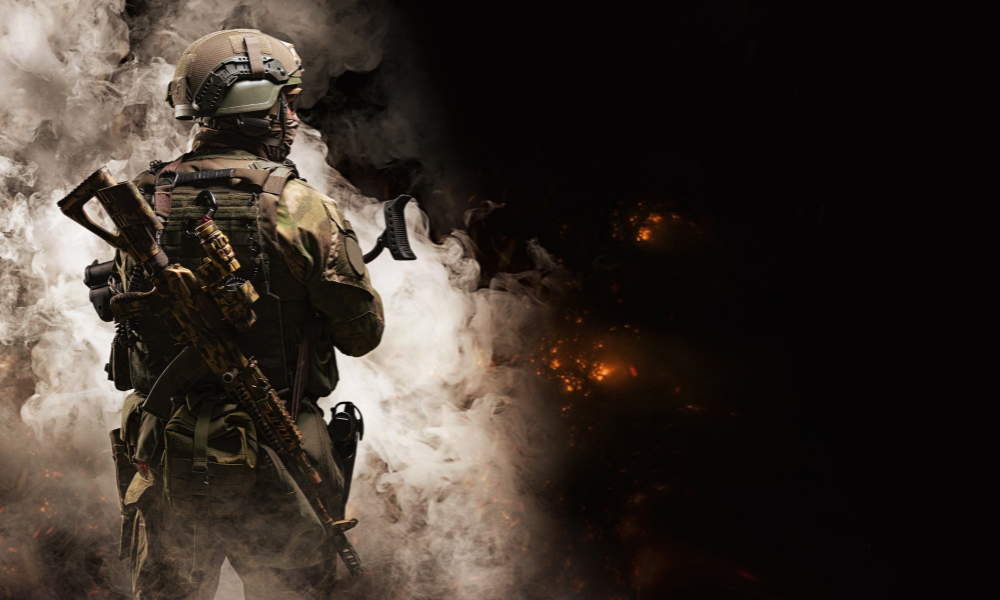
Hours before the trial was set to start, Trump announced that he would deploy the National Guard in Washington, DC

The Trump administration and California faced off in court Monday at the start of a three-day trial over President Donald Trump’s decision to deploy the National Guard and Marines in Los Angeles.
Trump sent the troops to the nation’s second-largest metropolitan area in June to address protests against immigration arrests, against the wishes of Governor Gavin Newsom. Most of the troops have been recalled, but a ruling in favor of California could hamstring the president’s ability to respond to domestic emergencies, the government argues.
Just hours before the trial was set to start, Trump announced that he would deploy the National Guard in Washington, DC to crack down on what he called out-of-control crime.
US District Judge Charles Breyer in San Francisco is hearing testimony and legal arguments to determine whether the deployment violated the Posse Comitatus Act, a federal law that strictly limits enforcement of civilian laws by members of the military.
Trump deployed about 4,000 National Guard troops to Los Angeles, ordering them to the streets under federal control. Trump also sent about 700 active-duty Marines to the city.
Lawyers for California presented evidence and questioned witnesses on Monday, including military officials who oversaw the task force of Marines and guardsman. The lawyers displayed social media posts with photos and videos that they said showed soldiers from the task force patrolling the same ground as local law enforcement officers in situations where there was not a clear threat from protesters.
Major General Scott Sherman, commander of Task Force 51, said federalized troops were told their responsibility was to defend federal personnel and facilities in the area and that soldiers were authorized to act in defense if members of the public presented a threat.
Newsom and LA Mayor Karen Bass, both Democrats, have argued troops weren’t needed and their presence inflamed tensions. Newsom has said the troops were diverted from more important duties, including wildfire suppression and helping battle drug smuggling at the Mexican border.
“The city didn’t feel dangerous. But is that a decision for me to make?” Jon Michaels, a law professor at the University of California, Los Angeles, said ahead of the trial. “Is that a decision for Gavin Newsom to make? Is that a decision for Judge Breyer to make? Or is it up to federal officials? Whoever ultimately gets to make that decision dictates how this case comes out.”
Earlier this year, Breyer ordered Trump to return the National Guard to Newsom’s control, but a federal appeals court in San Francisco put a hold on the order, ruling that Trump had likely acted within the law.
In Washington, Trump said Monday that he would take control of the Metropolitan Police Department and deploy 800 National Guard troops. He painted a nightmarish picture of a capital that’s been “overtaken” by “bloodthirsty criminals” and “roving mobs of wild youth” that was at direct odds with statistics showing plummeting crime rates.
‘Great Significance’
Breyer said that over the course of this week’s proceedings, he’ll be assessing whether federal troops were used illegally for traditional law enforcement activities and, if so, whether there is a risk that it will happen again.
“With President Trump increasingly talking about using troops for law enforcement purposes, this trial has great significance,” Erwin Chemerinsky, dean of the law school at the University of California, Berkeley, said in an interview.
A win for Trump could be seen as a green light for presidents to unilaterally employ the military to police citizens inside the US.
The Trump administration has argued that the president has broad, unilateral power to federalize the National Guard when he determines there is a “rebellion” or “invasion” or when “regular forces” are unable to enforce the law. A lawyer for the state has called the prospect that a president can order troops into US cities without court review “terrifying.”
The case may ultimately be decided by the US Supreme Court, long after the troops have left Los Angeles. Nearly all have now been recalled, with just a small contingent left to stand guard at some federal facilities.
The case is Newsom v. Trump, 25-cv-04870, US District Court, Northern District of California (San Francisco).
Copyright Bloomberg News